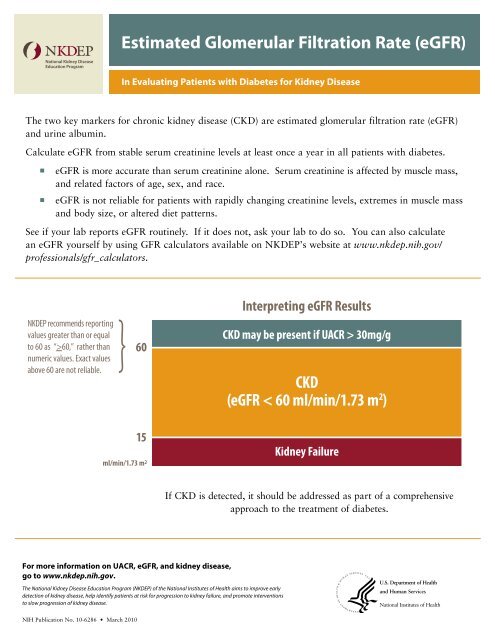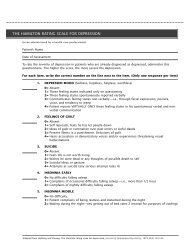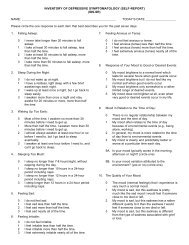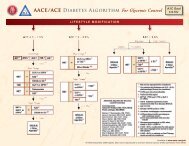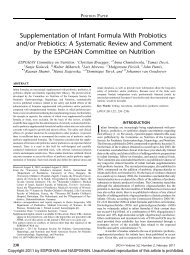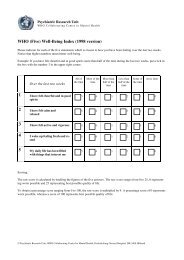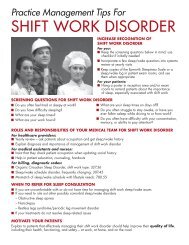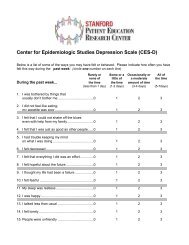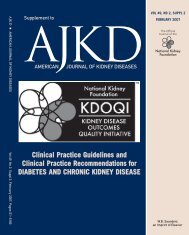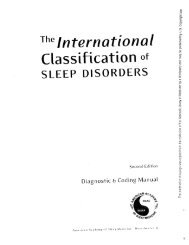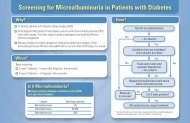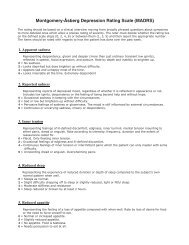Urine Albumin-to-Creatinine Ratio (UACR) - National Kidney ...
Urine Albumin-to-Creatinine Ratio (UACR) - National Kidney ...
Urine Albumin-to-Creatinine Ratio (UACR) - National Kidney ...
Create successful ePaper yourself
Turn your PDF publications into a flip-book with our unique Google optimized e-Paper software.
<strong>National</strong> <strong>Kidney</strong> Disease<br />
Education Program<br />
Estimated Glomerular Filtration Rate (eGFR)<br />
Prognosis<br />
Response <strong>to</strong> Treatment<br />
In Evaluating Patients with Diabetes for <strong>Kidney</strong> Disease<br />
Risk of renal events<br />
The two key markers for chronic kidney disease (CKD) are estimated glomerular filtration rate (eGFR)<br />
and urine albumin.<br />
Calculate eGFR from stable serum creatinine levels at least once a year in all patients with diabetes.<br />
n<br />
n<br />
eGFR is more accurate than serum creatinine alone. Serum creatinine is affected by muscle mass,<br />
and related fac<strong>to</strong>rs of age, sex, and race.<br />
eGFR is not reliable for patients with rapidly changing creatinine levels, extremes in muscle mass<br />
<strong>UACR</strong> at diagnosis<br />
Reduction in <strong>UACR</strong> (%)<br />
and body size, or altered diet patterns.<br />
See if your lab reports eGFR routinely. If it does not, ask your lab <strong>to</strong> do so. You can also calculate<br />
an eGFR yourself by using GFR calcula<strong>to</strong>rs available on NKDEP’s website at www.nkdep.nih.gov/<br />
professionals/gfr_calcula<strong>to</strong>rs.<br />
Risk of kidney failure<br />
NKDEP recommends reporting<br />
values greater than or equal<br />
<strong>to</strong> 60 as “>60,” rather than<br />
numeric values. Exact values<br />
above 60 are not reliable.<br />
60<br />
Interpreting eGFR Results<br />
CKD may be present if <strong>UACR</strong> > 30mg/g<br />
CKD<br />
(eGFR < 60 ml/min/1.73 m 2 )<br />
15<br />
ml/min/1.73 m 2<br />
<strong>Kidney</strong> Failure<br />
If CKD is detected, it should be addressed as part of a comprehensive<br />
approach <strong>to</strong> the treatment of diabetes.<br />
For more information on <strong>UACR</strong>, eGFR, and kidney disease,<br />
go <strong>to</strong> www.nkdep.nih.gov.<br />
The <strong>National</strong> <strong>Kidney</strong> Disease Education Program (NKDEP) of the <strong>National</strong> Institutes of Health aims <strong>to</strong> improve early<br />
detection of kidney disease, help identify patients at risk for progression <strong>to</strong> kidney failure, and promote interventions<br />
<strong>to</strong> slow progression of kidney disease.<br />
U.S. Department of Health<br />
and Human Services<br />
<strong>National</strong> Institutes of Health<br />
NIH Publication No. 10-6286 • March 2010


